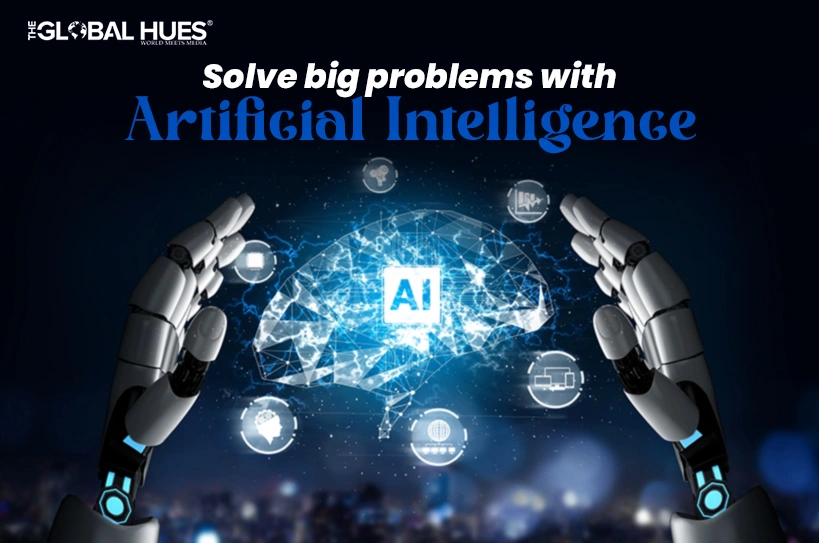Deval Parikh is an IT expert with more than 17 years of experience. Majority of the experience in Fortune 500 companies. His journey showcases the power of his strategic prowess and steady dedication to his work. His expertise spans in Artificial Intelligence, Machine Learning, Cloud Computing, Database technologies, Migration activities, and more. He trained many employees during his journey. He showcased many cutting-edge technology presentations.
About Artificial Intelligence
Artificial intelligence, or AI, is technology that enables computers and machines to simulate human intelligence and problem-solving capabilities. In simple words, AI systems learn from historic data. If the data provided is biased, then that would be inherited by the AI. The bias in AI could lead to unfair treatment and discrimination, which could be a concern in critical areas.
Type of problems AI can solve!
AI has potential to solve varieties of problems.
Medical Issues
AI is being used in a variety of ways to improve healthcare. It can change ways to AI can analyze medical data quickly, helping to diagnose diseases, suggest treatments, and predict health issues. AI can generate the pattern based on earlier patients’ medical records and can help to findout the pattern for any disease in very initial phase. It can also help in managing patient records and personalizing care plans. AI-powered diagnostics can help doctors diagnose diseases more accurately and efficiently. For example, AI can look at X-rays or MRI scans to spot problems that might be missed by the human eye. AI is also being used to develop new drugs and treatments, and to personalize medical treatments to individual patients.
Environmental change
AI monitors pollution, predicts weather events, and helps manage natural resources. It can track weather changes, monitor pollution levels, and assess the health of ecosystems. AI models can predict extreme weather events and suggest ways to reduce emissions. For example, it can optimize energy use in buildings or design more efficient renewable energy systems. By processing large amounts of data quickly, AI helps scientists and policymakers make better decisions to protect the environment and address climate change more effectively.
Educational needs
AI helps in education by making learning more personalized and efficient. AI can create customized lessons based on each student’s strengths and needs, and provide instant feedback on their work. It can also assist teachers by grading assignments, tracking progress, and suggesting resources. AI-driven tools can offer tutoring or extra help in subjects where students struggle. Additionally, AI can help manage administrative tasks, giving educators more time to focus on teaching.
Safety concerns
AI helps improve public safety by analyzing data to predict and prevent incidents. For example, AI can monitor surveillance cameras to spot unusual activities or alert authorities to potential threats. It can help manage emergency response by directing resources quickly and efficiently. AI tools can also analyze crime patterns to identify hotspots and suggest preventive measures. AI aims to make communities safer by enhancing response times and improving crime prevention strategies.
Social fairness
AI identifies and addresses biases, promotes equal opportunities, and supports justice initiatives. AI can analyze data to uncover patterns of discrimination or unfair treatment in areas like hiring, law enforcement, and lending. It helps ensure fairness by detecting bias in decision-making processes and suggesting ways to correct it. AI can also support social justice organizations by managing data, predicting trends, and highlighting areas needing attention. By providing insights and promoting transparency, AI aims to create more equitable systems and support efforts to achieve fair treatment for all individuals. Additionally, tools like AI Chat can facilitate open communication and understanding, bridging gaps in diverse communities..
Business efficiency
AI boosts business efficiency by automating tasks and analyzing data. It can handle repetitive jobs like sorting emails or managing schedules, freeing up employees for more complex work. AI tools analyze business data to spot trends, make forecasts, and suggest improvements. They also help with customer service by answering common questions and resolving issues quickly. In supply chain management, AI optimizes inventory and predicts demand. Overall, AI helps businesses run smoother, make better decisions, and save time and money by improving accuracy and speeding up processes.
Transportation
AI improves transportation by making it safer and more efficient. AI helps manage traffic flow by analyzing real-time data and adjusting signals to reduce congestion. It enhances navigation with smart maps and traffic updates. AI also powers self-driving cars, which can make driving safer by avoiding accidents and following traffic rules. In logistics, AI optimizes delivery routes and predicts maintenance needs for vehicles. Overall, AI helps streamline transportation systems, making travel faster, safer, and more reliable.
Hence, AI can solve many problems in the world and make world better!
– Deval Parikh
*The information in this article does not necessarily reflect the views of The Global Hues. We make no representation or warranty of any kind, express or implied, regarding the accuracy, adequacy, validity, reliability, availability or completeness of any information in this article.*




